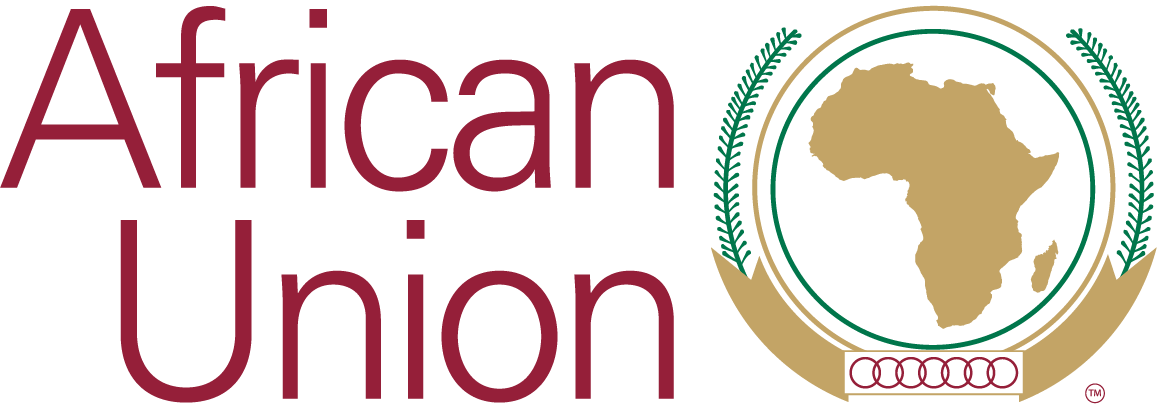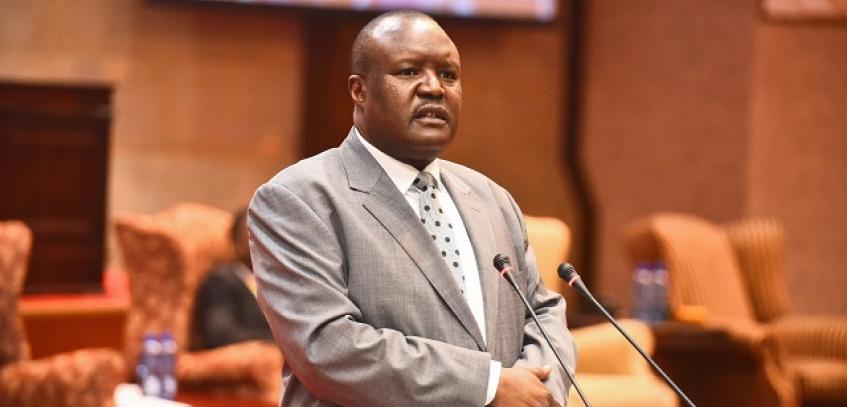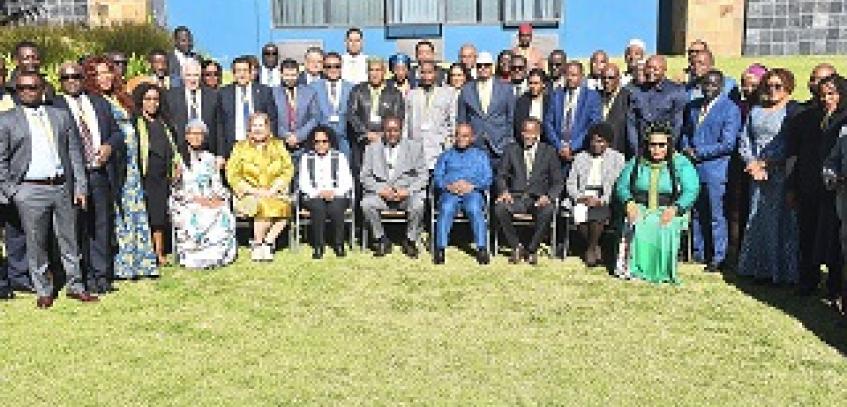The Pan-African Parliament (PAP) has a pivotal role to play in overseeing the implementation of commitments related to the African Continental Free Trade Area Agreement (AfCFTA) by Member States through their national Parliaments. This is according to the President of the PAP, H.E. Chief Fortune Charumbira, while delivering his opening remarks at a Workshop held on the African Union Theme for 2023, “Accelerating the African Continental Free Trade Area (AfCFTA): The Strategic Significance of the Pan-African Parliament.”
Currently underway in Midrand, South Africa, on the sidelines of the ongoing Ordinary Session of the Sixth Parliament of the PAP, the two-day workshop seeks to unbundle the African Free Trade Area and to define the role of the PAP in accelerating the effective implementation of this landmark trade agreement. It also aims to achieve means in which the PAP can play an active and proactive role for its contribution in the development of the African continent.
“The implementation of the AfCFTA is thus not a responsibility of governments alone,” said H.E. Chief Charumbira. “We must pull out all the stops to engender self-reliance and self-sufficiency on the African continent by reducing dependency on the West and enhancing interdependency among African states. Our rallying cry shall remain, “One Africa, One Voice. The PAP needs to go out to the respective national Parliaments and to the people to enhance awareness on the AfCFTA and advocate for its ratification and domestication in national legislation.”
H.E. Chief Charumbira underlined that AfCFTA could deliver far greater benefits in terms of jobs, growth, and poverty reduction than previously estimated – making it a potential game changer for Africa’s economic development if its goals are fully realised. “The AfCFTA can bring higher-paid, better-quality jobs, with women seeing the biggest wage gains. Wages would rise by 11.2 percent for women and 9.8 percent for men by 2035, albeit with regional variations depending on the industries that expand the most in specific countries. If AfCFTA’s goals are fully realized, 50 million people could escape extreme poverty by 2035, and real income could rise by 9 percent. Under deep integration, Africa’s exports to the rest of the world would go up by 32 percent by 2035, and intra-African exports would grow by 109 percent, led by manufactured goods,” he added.
He also indicated that he firmly believes that the African Union’s timely efforts to accelerate the implementation of the AfCFTA presents an opportunity for the continent to refocus on women and youth empowerment initiatives. “Africa has the world's youngest population, with over 400 million young people aged 15 to 35 years and over 52% of the continent’s population are women. To galvanise Africa's accelerated economic growth agenda, women and the youth must be a prime anchor of the AfCFTA. In that regard, we must include women and the youth in all facets of the AfCFTA implementation. Our operative mantra as it relates to women and the youth must always be “Nothing for us without us.”
Furthermore, H.E Charumbira also accentuated that Africa needs to speed up the implementation of the AFCFTA and foster self-sufficiency and self-reliance is the unequal treatment of African leaders on the world stage. “Let me applaud our leaders for asserting Africa’s pride and place in global politics by demanding respect for Africa and African leaders. We commend the decision by our leaders that, going forward, if there is going to be any discussion between Africa and any other country, the continent will be represented by the Troika. This reflects a growing sense of pan Africanist pride and self-determination among our leaders who are pushing back against western dominance and demanding greater representation in global affairs.
“If we are not treated on an equal footing in meetings, we should never delude ourselves to think we will be treated on an equal footing in trade. It is high time, therefore, that Africa leverages on the AFCFTA to boost trade between and among African countries and do away with this debilitating dependency on the western world,” he said.
Delivering his welcome remarks, Hon. John Bideri, Chairperson of the Committee on Trade, Customs and Immigration Matters said the year 2023 is a pivotal year for the AfCFTA, as it not only means accelerating the necessary infrastructure and putting in place functional systems, but it also offers the continent an exceptional opportunity to fully activate the existing policy instruments that envision placing youth at the centre of the African agenda. Hon. John Bideri further mentioned that the AfCFTA will bring prosperity to Africa.
Representing the Secretary General of the AfCFTA, Mr Mohamed Ali mentioned that they rely on the PAP’s support and leadership in steering the processes of the AfCFTA. “We are pleased with the role you are playing; we are pleased to inform you that we are getting positive feedback in the area of implementation of the AfCFTA. We request that you continue your support and fight for a better Africa.”
Meanwhile, Dr Amany Asfour, President of the African Business Council, has urged the PAP to empower young people if a better and developed Africa is to be realised. “Let us also put our focus on youths who are in the private sector in our continent. There is more they can bring on the table for AfCFTA to fruition. Youths are the majority in our continent; we need to work with them to get economic liberation,” she said disclosing that the ideology of the business council is anchored on private sector strengthening, policy advocacy and product development.











